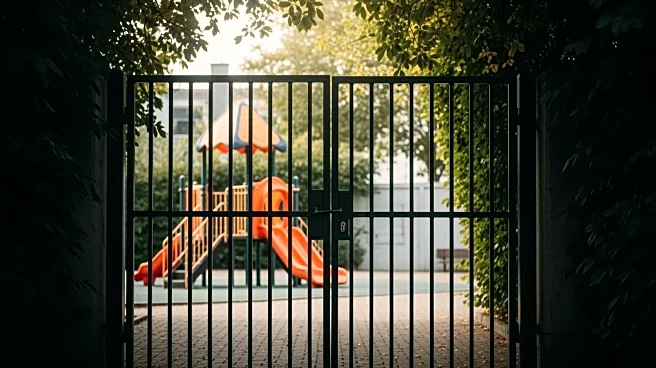What's Happening?
Boris Johnson appeared before the Covid Inquiry to address decisions made during the pandemic, particularly the closure of schools, which he described as a 'personal horror' and a 'nightmare idea.' The
inquiry, chaired by Baroness Heather Hallett, is examining the impact of these decisions on children, including increased demand for speech and language support, high rates of school absenteeism, and record levels of suspensions and exclusions. Johnson defended the decision as necessary at the time, despite criticism from former education secretary Gavin Williamson and others who argued for better preparation for school closures. The inquiry is scrutinizing the government's decision-making process, which has been described as chaotic, with unclear responsibilities for planning for children's welfare.
Why It's Important?
The inquiry highlights the significant impact of pandemic-related school closures on children's education and well-being. The decisions made by the government during this period have long-term implications for educational policy and crisis management. The inquiry's findings could influence future government strategies in handling public health emergencies, particularly in balancing public safety with educational needs. Stakeholders such as educators, parents, and policymakers are keenly interested in the outcomes, as they could lead to reforms in how educational disruptions are managed in future crises.
What's Next?
The inquiry will continue to gather evidence and testimonies, with Baroness Hallett expected to focus on what could be done differently in future pandemics. The final report will likely address the need for clearer contingency planning and responsibilities within the government. The findings could prompt legislative or policy changes aimed at better protecting children's education during emergencies. Public and political reactions to the inquiry's conclusions will be closely watched, as they may influence future government accountability and transparency in crisis management.
Beyond the Headlines
The inquiry also raises ethical questions about the balance between public health measures and children's rights to education. The long-term psychological and social effects of school closures on children are areas of concern that may require further research and policy attention. The inquiry's focus on decision-making processes could lead to broader discussions about governmental accountability and the role of scientific advice in policy decisions.








